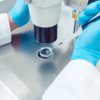Fritextsökning
Artiklar per år
Innehållstyper
-

Meeting with focus on South Korea and Japan’s life sciences
Large, complex and exciting – this is how Britta Stenson, Business Sweden, describes the life science markets of Japan and South Korea, which took centre stage during a webcast seminar.
-

Major advances in IVF labs in the last few decades
Since the introduction of in vitro fertilisation several decades ago, many developments have been made in the field, and the main part of that development has taken place in the lab.
-

“I am driven by the desire to develop a product that can be sold worldwide”
Ranked number one in the world by the WHO in diarrhoea research and soon in phase III studies for its vaccine candidate – Scandinavian Biopharma is rushing forward in the pursuit of the world’s first ETEC vaccine. Meet the company’s CEO Björn Sjöstrand.
-

Column: ”Cheating with pea flowers and does it matter whether you are right?”
Is it possible to forgive shortcuts or outright cheating in science - if it turns out that the researcher was ultimately right? Anna Törner discuss this topic in a column.
-

Hög höjd motverkar metabola syndromet
Diabetes, kranskärlssjukdom, högt kolesterol och fetma förekommer i lägre grad hos de två miljoner människor som bor och lever på höjder över 4 500 meter.
-

Stor kartläggning av svensk läkemedelsutveckling - "Väldigt imponerande bidrag"
Trots tuffa tider planerar två av tre life science-bolag att nyrekrytera – och antalet läkemedelsprojekt fortsätter att öka. Det visar branschorganisationen Sweden Bios stora kartläggning av svensk läkemedelsutveckling.
-

Nästa generation AI kan bli OI
I höstas presenterades hur mänskliga hjärnceller i en odlingsskål lärt sig att spela Dishbrain, en variant av tv-spelet Pong. Nu tas nästa steg.
-

Människa eller mus – även små skillnader kan vara viktiga vid lungcancer
En studie, som publicerats i Cancer Discovery, påminner om varför det är så viktigt att skilja på resultat från studier på olika biologiska arter.
-

The Swedish National Board of Health and Welfare rejects prioritising andrology as a speciality
Male infertility can be linked to a shorter lifespan and several severe diseases, but when couples who want children are examined, the focus is on the woman. Experts in the field claim that andrology needs to become a speciality in Sweden to increase awareness and knowledge. But the Swedish National Board of Health and Welfare says that it is not a priority.
-

“An entire industry is about to be wiped out”
According to Jennie Ekbeck, CEO of Umeå Biotech Incubators, Sweden risks not having any small diagnostic companies left in five years.
-

How critical are the “Spermageddon” reports? – Researchers call for action
A much talked about meta-study indicates that sperm concentration in men’s seminal fluid has halved in 40 years. Experts in andrology that Life Science Sweden speaks to believe that the results must be taken seriously, and call for action from the Swedish authorities.
-

Hur allvarliga är ”Spermageddon”-rapporterna? – Forskare vill se åtgärder
En uppmärksammad metastudie tyder på att koncentrationen av spermier i mäns sädesvätska halverats på 40 år. Experter på andrologi som Life Science Sweden talar med anser att resultaten bör tas på allvar – och att Socialstyrelsen måste agera.
-

Kan TBY-robotar bli ett tillskott till arsenalen inom precisionsmedicin?
Forskare från Kina presenterar i februarinumret av Science Advances en ny metod för målinriktad behandling vid inflammatorisk tarmsjukdom: en TBY-robot. En viktig komponent i roboten är jäst – samma sort som används för att ta fram en god öl, eller baka bröd, för den som föredrar det.
-

Column: ”Life as a F1 race”
"The F1 car makes several pit stops during a race and during a lifetime the human being may also have to come in several times for maintenance", Björn Ursing writes in a column.
-

Ny upptäckt kring telomerernas DNA – kan koda för proteiner
Telomererna, som sitter i ändarna av DNA-molekylen, har fler funktioner än vi tidigare trott, menar forskare från University of North Carolina, UNC, school of medicine.
-

New issue of Life Science Sweden!
The international issue of Life Science Sweden has been sent to press.
-

Editorial: ”AI that both impresses and frightens”
”In the past, I've rarely been particularly impressed by something that was produced by AI. But this is something completely different”, Samuel Lagercrantz writes in an editorial.
-

Hello Jenni Nordborg!
Life Science Sweden would like to know more about Jenni Nordborg and asks her about her new job, why she became a chemical engineer and who her role model is.
-

Vilka är de största riskfaktorerna för covid-19? Stor metastudie publicerad
Vem går igenom covid-19 med en axelryckning och vem kommer att behöva IVA-vård?
-

A surprising discovery about the immune system in cases of cancer
Professor Göran Jönsson is trying to understand why some patients benefit from immunotherapies while others don’t. A couple of years ago, he made a surprising discovery about the function of the immune system.
-

Rapid development in blood analysis – “Sweden is leading the race”
Thousands of analytical tests using just one single drop of blood. What was revealed as a hoax just a few years ago is now a reality, according to KTH professor and serial entrepreneur Mathias Uhlén.
-

Column: ”Authentic leadership and clear mandates pave the way for more female CEOs”
”I believe that the aspect of having clear mandates and titles on the one hand and women progressing into top positions must be explored further”, Helena Strigård writes in a column.
-

Fingeravtryck och zebrors ränder verkar använda samma matematiska modell
När dina fingeravtryck lämnar kladdiga spår på syltburken är det lika bra att erkänna direkt. Varje fingeravtryck är så unikt att det även skiljer sig enäggstvillingar emellan.
-

Individual DNA passport could result in fewer drug side effects
You may be required to show a DNA passport when you pick up medicines at the pharmacy in the future. According to a new study, patients might suffer 30% fewer side effects if the drug treatment is adapted to their genes.